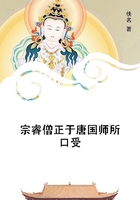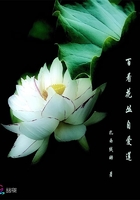"Yea, it forgives me all my sins, Fits life to love like rhyme to rhyme, And tunes the task each day begins By the last trumpet-note of Time."6It was this profound knowledge of music, of course, that enabled Lanier to write his work on `The Science of English Verse', and gave him a technical skill in versification akin to that of Tennyson.
1 See Ward's `Memorial', pp.xx, xxxi.
2 Hayne's (P.H.) `A Poet's Letters to a Friend'.
3 `Tiger-lilies', p.32.
4 Hayne's `A Poet's Letters to a Friend'.After settling in Baltimore Lanier devoted more time to poetry than to music, as we may see from this sentence to Judge Bleckley, in his letter of March 20, 1876:
"As for me, life has resolved simply into a time during which I must get upon paper as many as possible of the poems with which my heart is stuffed like a schoolboy's pocket."5 `The Symphony', l.368.
6 `To Beethoven', ll.61-68.
Like most great poets of modern times, Lanier was a sincere lover of nature.
And it seems to me that with him this love was as all-embracing as with Wordsworth.Lanier found beauty in the waving corn1 and the clover;2in the mocking-bird,3 the robin,4 and the dove;5in the hickory,6 the dogwood,6 and the live-oak;7in the murmuring leaves8 and the chattering streams;9in the old red hills10 and the sea;11 in the clouds,12sunrise,13 and sunset;14 and even in the marshes,15which "burst into bloom" for this worshiper.Again, Lanier's love of nature was no less insistent than Wordsworth's.We all remember the latter's oft-quoted lines:
"To me the meanest flower that blows can give Thoughts that do often lie too deep for tears;"16and beside them one may put this line of Lanier's,"The little green leaves would not let me alone in my sleep,"17because, as the context shows, he was"Shaken with happiness:
The gates of sleep stood wide."18
And how naive and tender was this nature-worship! He speaks of the clover19 and the clouds20 as cousins, and of the leaves21as sisters, and in so doing reminds us of the earliest Italian poetry, especially of `The Canticle of the Sun', by St.Francis of Assisi, who brothers the wind, the fire, and the sun, and sisters the water, the stars, and the moon.Notice the tenderness in these lines of `Corn':
"The leaves that wave against my cheek caress Like women's hands; the embracing boughs express A subtlety of mighty tenderness;The copse-depths into little noises start, That sound anon like beatings of a heart, Anon like talk 'twixt lips not far apart;"22to which we find a beautiful parallel in a poem by Paul Hamilton Hayne, himself a reverent nature-worshiper:
"Ah! Nature seems Through something sweeter than all dreams To woo me; yea, she seems to speak How closely, kindly, her fond cheek Rested on mine, her mystic blood Pulsing in tender neighborhood, And soft as any mortal maid, Half veiled in the twilight shade, Who leans above her love to tell Secrets almost ineffable!"23Moreover, this worship is restful:
"Oh, what is abroad in the marsh and the terminal sea?
Somehow my soul seems suddenly free From the weighing of fate and the sad discussion of sin, By the length and the breadth and the sweep of the marshes of Glynn.
.....
"By so many roots as the marsh-grass sends in the sod I will heartily lay me a-hold on the greatness of God:
Oh, like to the greatness of God is the greatness within The range of the marshes, the liberal marshes of Glynn."24But to Lanier the ministration of nature was by no means passive;and we find him calling upon the leaves actively to minister to his need and even to intercede for him to their Maker:
"Ye lispers, whisperers, singers in storms, Ye consciences murmuring faiths under forms, Ye ministers meet for each passion that grieves, Friendly, sisterly, sweetheart leaves, Oh, rain me down from your darks that contain me Wisdoms ye winnow from winds that pain me, --Sift down tremors of sweet-within-sweet That advise me of more than they bring, -- repeat Me the woods-smell that swiftly but now brought breath From the heaven-side bank of the river of death, --Teach me the terms of silence, -- preach me The passion of patience, -- sift me, -- impeach me, --And there, oh there As ye hang with your myriad palms upturned in the air, Pray me a myriad prayer."25In this earnest ascription of spirituality to the leaves Lanier recalls Ruskin.261 See `The Waving of the Corn' and `Corn'.
2 See `Clover'.
3 See `The Mocking-Bird' and `To Our Mocking-Bird'.
4 See `Tampa Robins'.
5 See `The Dove'.
6 See `From the Flats', last stanza.
7 See `Sunrise'.
8 See `Sunrise' and `Corn'.
9 See `The Song of the Chattahoochee' and `Sunrise'.
10 See `Corn'.
11 See `Sunrise' and `At Sunset'.
12 See `Individuality'.
13 See `Sunrise', etc.
14 See `At Sunset'.
15 See `The Marshes of Glynn', and read Barbe's tribute to Lanier, cited in the `Bibliography'.
16 `Intimations of Immortality', ll.202-203.
17 `The Symphony', l.3.
18 `The Symphony', ll.13-14.
19 `Clover', l.57.
20 `Individuality', l.1.
21 `Sunrise', l.42.
22 `Corn', ll.4-9.Compare `The Symphony', ll.183-190.
23 Hayne's `In the Gray of Evening': Autumn, ll.37-46, in `Poems' (Boston, 1882), p.250.
24 `The Marshes of Glynn', ll.61-64, 75-78.
25 `Sunrise', ll.39-53.
26 See his `Modern Painters', vol.v., part vi., chapter iv., and Scudder's note to the same in her `Introduction to Ruskin'
(Chicago, 1892), p.249.
To take up his next theme, Lanier, like every true Teuton, from Tacitus to the present, saw "something of the divine" in woman.
It was this feeling that led him so severely to condemn a vice that is said to be growing, the marriage for convenience.I quote from `The Symphony', and the "melting Clarionet" is speaking:
"So hath Trade withered up Love's sinewy prime, Men love not women as in olden time.
Ah, not in these cold merchantable days Deem men their life an opal gray, where plays The one red sweet of gracious ladies'-praise.
Now, comes a suitor with sharp prying eye --Says, `Here, you lady, if you'll sell, I'll buy:















